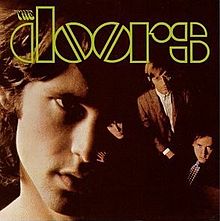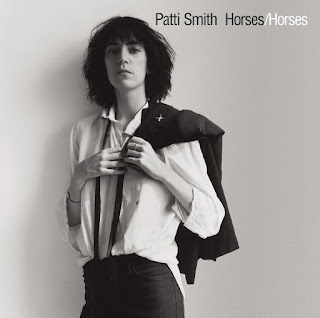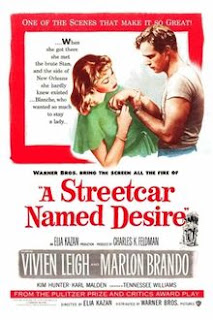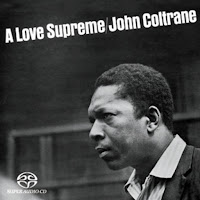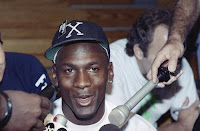The Doors, "The Doors", Released January 1967
The first time I really listened to The Doors was when I was around 15 years old. I was introduced to them via my brother and a kid named Morgan that we played soccer and roller hockey with after school and on weekends. He owned a greatest hits CD (cassette?) and we took turns listening to and copying it. Sometime in college I also acquired that greatest hits album...thanks BMG/Columbia House promotion. Needless to say, I've always really enjoyed the music of The Doors. I think they're unique in it's sound because of the incredible organ work of Ray Manzarek and of course Jim Morrison's lyrics and his distinct voice. I also love the guitar work of Robby Krieger, who apparently had only been playing electric guitar for six months when he was asked to join the band. No band sounds quite like them and I think it's definitely one reason why they've maintained their popularity even with Morrison dying in the 1971 at age 27.Tracks 8, 9, & 10 were all new to my ears. The others were on that greatest hits album I own. I enjoyed these tracks as well and was glad to discover them. I definitely intend to dig deeper into The Doors albums and find music beyond the "hits."
If I had a music time machine, seeing The Doors would definitely be high on my list of concerts to go back and witness. I can only imagine the atmosphere at a show when Morrison was at his most interestingly odd and engaged. And watching the audience trip on whatever hallucinogens might be as interesting as the show itself. People are still intrigued by Jim Morrison, partially because of his death at such a young age but also because people are also curious about what kind of music and lyrics he and his bandmates would have made as they aged. Manzarek died in 2013 but Krieger and drummer Densmore are still alive. But the hits they made in that era will last forever, both for their quality but also for their influence. They're definitely a band I would recommend anyone listen to if they enjoy rock music.
Additional reading:
https://en.wikipedia.org/wiki/The_Doors_(album)
https://en.wikipedia.org/wiki/Jim_Morrison
Rear Window, released September 1954
Hitchcock made great films. This isn't me making a bold statement but something I find it to be true every time I've watched one of his movies. I've seen this movie before but I still enjoyed it just as much. James Stewart is great and Grace Kelly compliments his acting so well and the supporting actors like the nurse (Thelma Ritter) and detective (Wendell Corey) were perfect casting. Even the people across the courtyard in the other building were well cast and somehow you can't envision any other actors playing those roles.I watched a short documentary of this movie that was included on the DVD I rented from my local library. It explained that the apartment building and courtyard were actually completely built inside a building on Paramount's production lot. This took six weeks to complete! I found this to be pretty cool considering the size of the building. The documentary indicated they had to take the floor out of building so that they could turn the basement into the courtyard area. By the time this film was made, Hitchcock was well established as a successful director so I imagine the studio would spend nearly whatever money he required to make his films look as he desired. Either way, it helped established the scale of the apartment building and how the tenants spaces related to one another versus just seeing them individually. I liked the way the building looked and it also helped create some additional claustrophobia as you can only barely see the New York street. It gave you a feeling of restriction, the same that Stewart's character must feel sitting in his apartment with a broken leg.
I liked the dialogue between Stewart and Kelly and they were both so believable in their portrayals as a couple considering taking the next step to marriage. And as he convinces her that Mr. Thorwald did in fact kill his wife, you can see him become more enamored with her and her sense of adventure to follow him down his path of proving it. From what I've read, Jimmy Stewart was personally very fond of Grace Kelly and their charisma is clear on screen.
 I would love to delve deeper into Hitchcock's movies as I've mostly only ever seen the most famous ones (Psycho, North By Northwest, Vertigo). But I know that many of his lesser known movies are
I would love to delve deeper into Hitchcock's movies as I've mostly only ever seen the most famous ones (Psycho, North By Northwest, Vertigo). But I know that many of his lesser known movies are just as great and influential. If you've never seen any of his films, I strongly suggest you do. They are from a different era of film making but are just as interesting and well made as anything made today. The dialogue is great and Hitchcock developed unique camera techniques, many of which are evident in this movie.
Additional reading:
https://en.wikipedia.org/wiki/Rear_Window
https://en.wikipedia.org/wiki/Alfred_Hitchcock
Next Week, #41
The Sex Pistols, "Never Mind The Bollocks, Here's the Sex Pistols"West Side Story
